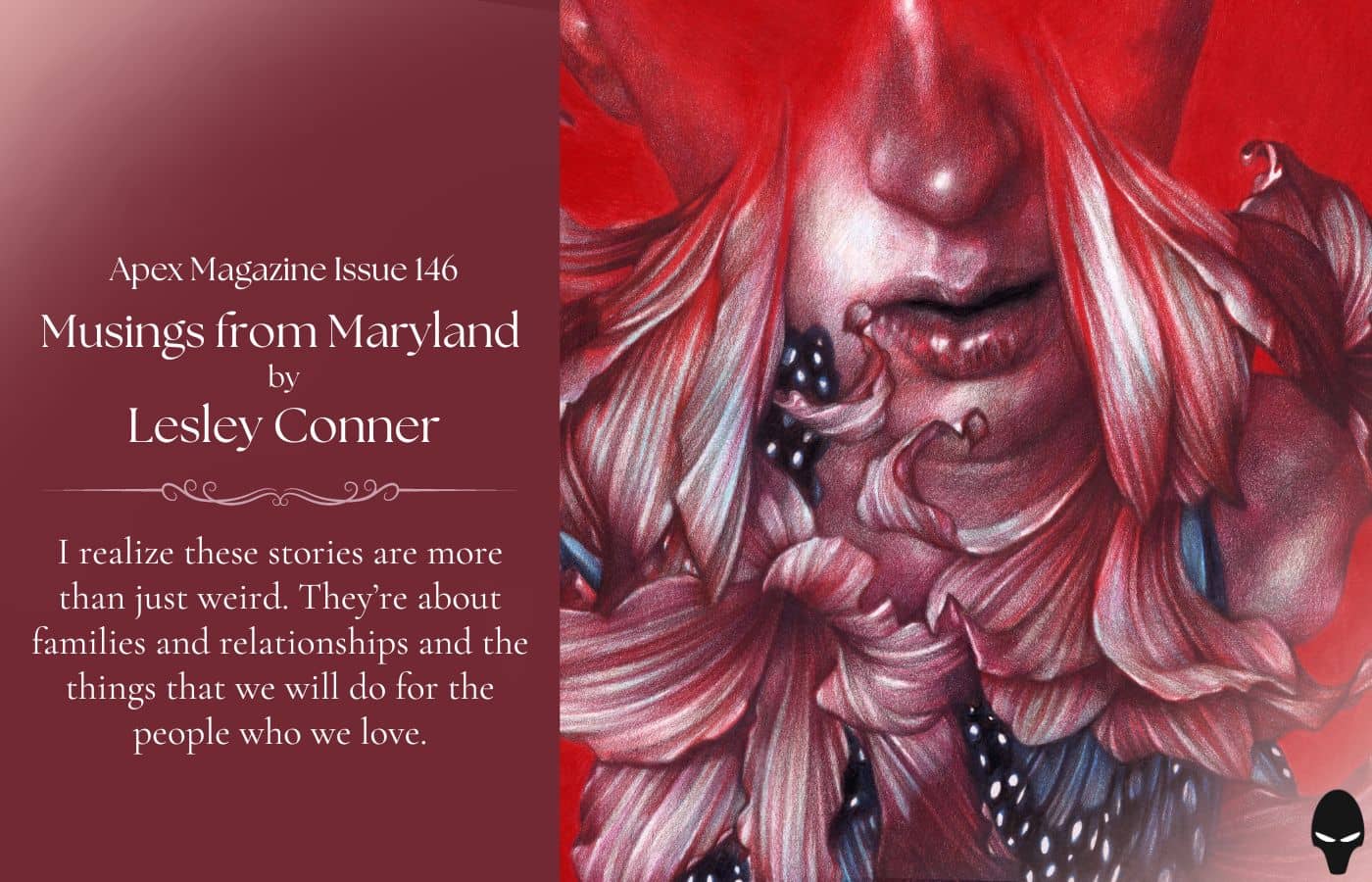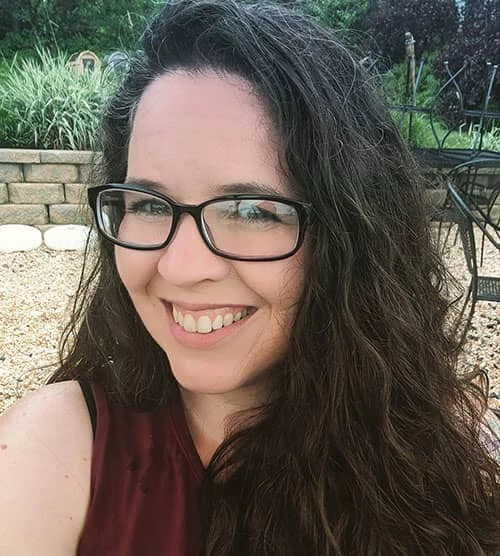
Welcome to Apex Magazine issue 146.
It’s funny the way issues come together. When selecting the original fiction, I thought I was building an issue of weird horror. Stories that are bizarre and take us on strange journeys. And I did. But looking at them all together, I realize these stories are more than just weird. They’re about families and relationships and the things that we will do for the people who we love.
We open the issue with “Kizimbani” by Eugen Bacon and Clare E. Rhoden. This is an epistolary story about a woman named Luna who gets stranded in a seemingly deserted village. She’s writing to her lover, Willow, to tell her about the bizarre things happening to and around her. She begins to believe she may not be as alone as she thought. Dread builds as the story gets stranger and stranger and Luna has no clear way to either deliver her messages to Willow or find her way back to her own world. This story is beautiful and terrifying.
As a mom who has put immense pressure on myself to make the holidays perfect and magical for my children, “And Someone Had To Do It” by Koji A. Dae hits very close to home. The story opens with the narrator queued in a long line of moms all trying to get the one thing that will make their children’s holiday perfect. It all seems very relatable, a holiday tradition that forces parents to go out and buy everything their kids need, price gouging by stores, and huge crowds. But as the story unfolds it becomes clear that this tradition is different from any we’ve ever taken part in. This story feels like a Shirley Jackson short story—a domestic situation that mirrors our own, but as it unfolds becomes bleaker and darker and more horrifying.
“A Tapestry of Dreams” by Victor Forna is another story about a mother who is willing to give up her own well-being to ensure the health and safety of her child. The mother weaves dreams to alleviate the symptoms of a rare illness that is killing her daughter. This story is steeped in complex family relationships, the guilt of past failures, and the fears of failing your family again.
I have long loved zombie stories, but I had no intention of ever buying one for Apex Magazine. Zombies aren’t fresh, there’s nothing new for authors to write about that I haven’t seen a hundred times before, they don’t have the emotional impact I’m looking for in an Apex story. Sigh … I love when writers prove me wrong. “What Good Daughters Do” by Tia Tashiro is the second zombie story that I’ve bought since becoming editor-in-chief. (The first is “All the Good You Did Not Do” by Jolie Toomajan in issue 141.) On the flipside of Dae and Forna’s story, this story is about a woman who does everything she can to prove that she is a good daughter. Her mother sacrificed a lot for her when she was growing up and now it is time to pay that back. The narrator’s mother is sick with a mysterious disease that is stealing her personality and driving her to consume meat … a lot of meat. This story is about the mental and physical toll taking care of a sick/declining parent can have on an adult child. It’s about the hopes that if they do everything correctly, their mom or dad will regain their health and independence. This story is a brutally honest depiction of what so many people have gone through or are going through with their own parents. I hope that some of those people see it and realize that they aren’t as alone as they may feel.
In “The Price of Moss,” Akis Linardos takes this idea of families and what we will do for them and zooms out. The story revolves around a man who has applied to become part of a sustainable community called Moss. In this community, they believe that no sacrifice is too great to offset our carbon footprint, even if this means cutting yourself off from the rest of the world, including your family. Despite hurting his mother by leaving, the narrator truly believes making this move is not only the best thing for the health of the planet but is also the best thing for his family because he will not be a financial or emotional burden on his family when he grows old and feeble. The Moss community will take care of him. But not all is as it seems and as the story progresses, the narrator has to decide if the contribution he’s making to the planet and to the future well-being of his family is worth the sacrifices he has to make personally and the pain he’s causing his family now. This is an interesting tale that questions whether sacrifices we make for the greater good truly are worth it.
For our September flash pieces, we had the themes SPIDER and GLITTER and two stories with unusually long titles. Alex Sobel's "The Eight Things You'll Never Be Now That You're Slowly Turning Into a Giant Spider Creature" is an incredible piece about relationships and how people change even as we continue to care about them. "A Very Short History of the Discovery and Origin of Homo Sapiens Microplasticus in Three Parts" by Joshua Ginsberg is an epistolary tale exploring how the past is interpreted as well as what we remember and what we forget, with a touch of sadness. Enjoy!
Our reprints this issue are by E. Catherine Tobler and Wendy N. Wagner. Both embrace the weird vibes of the original fiction and are a real treat. Marissa van Uden interviews Eugen Bacon and Clare E. Rhoden about their story “Kizimbani” and Tia Tashiro about “What Good Daughters Do.” Bradley Powers chats with our cover artist Marco Mazzoni.
Our nonfiction essays this issue are from Renan Bernardo and Jordan Kurella. Renan breaks down what it was like growing up a SFF fan in Brazil. Jordan’s piece continues the conversation Christopher Mark Rose began in issue 145 about the importance of community in as a writer. I hope that you will read both essays and ask yourself what is the best way for you to build a writing community for yourself.
Before I close, I want to thank every reader and writer who supported Apex Magazine’s latest Kickstarter. Between the funds raised through this campaign, plus those from subscribers and patrons, we have secured funding for four issues in 2025. That means the magazine may look a bit different next year, but I am dedicated to making it amazing! Thank you!
Yours in reading,
Lesley Conner
Editor-in-Chief
Apex Magazine









